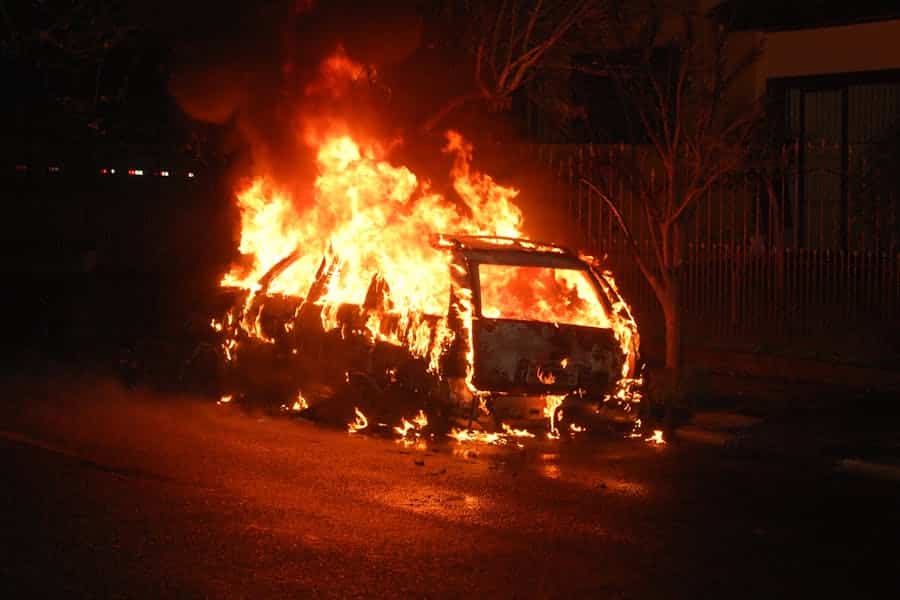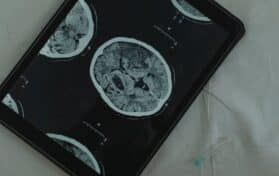
In the bustling city of Lakewood, understanding the nuances of car accident liability can be a challenging task for drivers. This understanding is essential when dealing with traffic laws, insurance claims, and determining fault. There are multiple layers to contemplate, from the implications of local regulations to the often complicated interactions with insurance companies. Importantly, knowing how to protect oneself after an accident and seeking appropriate legal counsel can make a significant difference in outcomes. One might wonder, then, how does one navigate this complex landscape and secure the best possible resolution?
Understanding Car Accident Liability
To fully understand the complexity of car accident liability in Lakewood, one must explore the intricate legal principles that determine who is at fault in different scenarios. These principles revolve around traffic violations, liability implications, comparative negligence, and injury compensation.
Traffic violations are a common cause of car accidents and are often a determining factor in establishing fault. They can range from speeding, running a red light, to distracted driving, such as texting while driving. These violations can have significant liability implications. For instance, a driver who was speeding at the time of the accident may be held liable for any damages or injuries that occur.
Comparative negligence is another principle that plays a pivotal role in car accident liability. This legal concept allows the court to assign a percentage of blame to each party involved in the accident. This percentage then directly affects the amount of injury compensation that the injured party can claim. For example, if a driver is found to be 30% at fault, their compensation would be reduced by that amount. Understanding these principles can aid in maneuvering the complex landscape of car accident liability in Lakewood.
Defining “Fault” in a Car Accident
Having explored the legal principles that influence car accident liability, it becomes essential to precisely define what ‘fault’ means in the context of a car accident. ‘Fault’ basically refers to the party responsible for causing the accident due to negligence or violation of traffic rules.
In Lakewood, as in many jurisdictions, the legal system uses the principle of ‘fault presumption’ to determine liability. This principle presumes that the party who violated a traffic rule is at fault and thus liable for damages. For instance, if a driver runs a red light and collides with another vehicle, the law will presume that the driver who ran the red light is at fault.
However, this presumption can be rebutted or contested. This is where ‘comparative negligence’ comes into play. Comparative negligence considers the degree of fault of each party involved in the accident. If both parties were negligent, the court will assign each a percentage of fault. The damages payable reflect this percentage. For instance, if one driver is deemed 70% at fault and the other 30%, the former’s damages will be reduced by 30%.
Understanding these concepts of fault and negligence is vital for drivers to know their rights and responsibilities on the road.
The Role of Insurance Companies
In the aftermath of a car accident, insurance companies play a critical role in resolving issues of liability and compensation. Primarily, they are tasked with investigating the incident to ascertain the at-fault party and to evaluate the validity of the claim. This process often involves complex insurance fraud detection techniques to guarantee that fraudulent claims are identified and dismissed.
Insurance firms also handle the financial aspects of an accident. They assess the damage to vehicles and other property, as well as any physical injuries incurred. The company will then determine the amount to be paid out based on the policyholder’s coverage limits and deductibles.
Policyholder responsibilities come into play here as well. Policyholders are required to report accidents promptly and provide accurate, detailed information to facilitate the claim process. Failure to do so can result in delayed settlements or even claim denial. Additionally, policyholders should cooperate with their insurer’s investigation, which may include providing access to medical records or participating in an independent medical examination.
Determining Liability in Multi-Car Accidents
While insurance companies carry out their roles, another intricate aspect of car accidents, particularly those involving multiple vehicles, is determining who bears the liability. This process often involves the use of accident reconstruction, a scientific method used to understand and visualize the sequence of events leading up to and during the accident. In a multi-car accident scenario, reconstruction experts use physical evidence, eyewitness reports, and sometimes even video footage to piece together the incident accurately.
Determining liability also involves applying the principle of comparative negligence. This legal concept is used to allocate responsibility and damages based on the degree of each involved party’s fault. For instance, if a driver is determined to be 70% at fault in a four-car pile-up, they may bear the majority of the liability. However, if another driver involved was found to be texting while driving, they could also share part of the blame.
Understanding these aspects is essential for drivers involved in multi-car accidents. It allows them to grasp the potential legal implications and prepare for any ensuing litigation or insurance claims. This knowledge is key to maneuvering the complex landscape of multi-car accident liability.
Unique Factors of Lakewood Accident Laws
Traversing the terrain of accident laws in Lakewood presents its own unique set of challenges and considerations, shaped by local regulations and legal precedents. Lakewood’s accident laws are influenced by several distinctive factors that set it apart from other jurisdictions.
One such factor is Lakewood’s climate impact on driving conditions. The city is known for its cold, snowy winters which can make roads slippery and visibility poor, leading to an increased likelihood of accidents. In these cases, the law may take into account whether a driver was exercising reasonable care under the circumstances, including adjusting their driving behavior according to the weather conditions.
Another unique factor is the influence of traffic patterns on accident occurrence in Lakewood. The city’s layout, with its mix of congested urban roads and open highways, influences the types of accidents that may occur, and accordingly the applicable laws. For instance, multi-lane highways may see more accidents involving lane changes, while urban areas might have more pedestrian-related incidents. Understanding these distinctive elements of Lakewood’s accident laws can be critical for drivers dealing with liability in the aftermath of a collision.
How Witnesses Can Influence Liability
The role of eyewitness accounts often comes to the forefront when determining liability in car accidents, as they can provide an important external perspective on the event. Witnesses can often provide a clear and unbiased account of what transpired, thereby influencing the determination of responsibility.
However, the impact of a witness’s account heavily relies on their credibility. Witness credibility, which hinges on factors such as the witness’s vantage point at the time of the incident, their ability to recall events accurately, and their level of attentiveness, can either validate or challenge the accounts given by the parties involved in the accident. If a witness is deemed credible, their testimony can significantly influence the outcome of a liability investigation.
On the other side of the coin, witness tampering is a serious concern that can distort the truth and complicate liability claims. This unethical practice involves altering or influencing a witness’s testimony through bribery, threats, or manipulation. While rare, it can drastically skew the liability determination process, making it crucial for investigators to safeguard the integrity and impartiality of all witnesses.
Role of Police Reports in Liability
Shifting our focus to the role of police reports, it is important to recognize that these official documents often play a pivotal role in determining car accident liability in Lakewood. Police reports offer an objective record of the incident, detailing the circumstances, involved parties, and any evident violations of traffic laws. They serve as a critical evidence source in liability disputes, providing insights that can shape the trajectory of a legal case.
However, the reliability of these reports may come into question in instances of police misconduct or report inaccuracies. Especially, if an officer inaccurately records the accident scene or misinterprets information, it could significantly skew liability assessments. Similarly, any signs of police misconduct, such as bias or unprofessional behavior, can undermine the credibility of the report and unfairly influence liability determinations.
Therefore, it is essential for drivers to carefully review police reports for any potential errors or inconsistencies. Engaging a legal expert to scrutinize these documents can also be beneficial. Understanding the role of police reports in liability determination helps drivers navigate the complexities of accident disputes, ensuring fair outcomes.
Protecting Yourself After an Accident
Finding your way through the aftermath of a car accident can be intricate and overwhelming, therefore understanding how to protect oneself is crucial. This section will provide an overview of immediate post-accident steps, emphasizing the importance of accurately documenting incident details. We will also offer guidance on effectively handling insurance matters, to guarantee your rights and interests are safeguarded.
Immediate Post-Accident Steps
In the aftermath of a car accident in Lakewood, taking immediate and important steps is essential to safeguard your rights and interests. The emergency response protocol, which should be initiated without delay, involves contacting emergency services for medical and police assistance. This guarantees both the safety of all parties involved and the official documentation of the incident.
The necessity for medical attention cannot be overstated, even if no injuries are immediately apparent. Not all injuries exhibit symptoms right away and could potentially have long-term effects if left untreated. Therefore, it is essential to get checked by a medical professional after an accident. This not only ensures your well-being but can also serve as a critical piece of evidence if legal proceedings ensue.
Moreover, it is equally important to notify your insurance company about the accident promptly. This allows them to start processing your claim and provides you with the necessary guidance during this stressful time. Remember, the actions you take in the immediate aftermath of an accident can have a significant impact on your ability to receive compensation for any damages incurred.
Documenting Incident Details
Ensuring a comprehensive documentation of the incident details is a crucial aspect of protecting oneself after a car accident in Lakewood. Concrete evidence in the form of photographs, videos, and detailed accounts can serve as a strong foundation for personal injury claims. Not only does it substantiate your version of the incident, but it also aids in the compensation negotiation process.
Photographs should include all angles of the vehicles involved, capturing the damage inflicted. Any visible injuries should also be photographed. However, it doesn’t end there. Written accounts of the incident, along with the contact information of any witnesses present, are of equal importance. This account should be as detailed as possible, including weather conditions, time of the accident, and the sequence of events leading up to the collision.
Handling Insurance Matters
After meticulously documenting the incident, the next step involves dealing with insurance matters, a component that plays a significant role in safeguarding your interests post-accident. It is important to understand the nuances of your policy coverage and how it can aid in claim settlement.
Immediately after the accident, inform your insurance company about the incident. Provide them with detailed details regarding the accident, including damages and injuries. This communication initiates the claim settlement process and can be instrumental in expediting the resolution.
Understanding your policy coverage is vital. It outlines the financial protection you have in the event of an accident. It can include coverage for vehicle repairs or replacement, medical expenses, and liability coverage if you’re at fault. Be aware, some policies may have specific stipulations that limit coverage or require additional steps for claim approval.
Negotiating a claim settlement can be a complex process. Consider consulting with a legal professional experienced in auto accident claims, especially in cases involving severe injuries or significant property damage. They can help you navigate through the intricacies of insurance laws, ensuring that your rights are protected and you receive a fair settlement.
Preventing Accidents and Liability
To effectively prevent accidents and liability in Lakewood, it is important to adhere to safe driving practices and have a thorough understanding of liability laws. Adopting defensive driving techniques can greatly reduce the risk of accidents, and being informed about the legal implications can help in mitigating the chances of liability. In the following sections, we will examine these two key factors in detail.
Safe Driving Practices
Adopting safe driving practices is a fundamental approach in the prevention of car accidents and the avoidance of subsequent liability in Lakewood. This includes understanding the defensive driving benefits, which not only promote safety but can also reduce the chances of being held liable in the event of an accident.
Defensive driving fundamentally involves being always aware and prepared for any potential hazards. This includes maintaining a safe distance from the vehicle in front, obeying traffic rules, and being attentive to the actions of other drivers. It also involves anticipating and adjusting to changes in weather conditions – a factor that greatly impacts road safety in Lakewood.
The impact of weather conditions on driving cannot be overstated. Sudden rainfall can make the roads slippery, while fog can drastically reduce visibility. Drivers should adjust their speed accordingly and use the appropriate lights to increase their visibility. During winter, roads may become icy, necessitating the use of tire chains or snow tires.
Understanding Liability Laws
While practicing safe driving is an important measure in preventing accidents, it is equally essential to have a thorough understanding of liability laws in Lakewood to further reduce the risk of being found responsible for a mishap. These laws dictate who is legally accountable for the damages resulting from a car accident, and their understanding is essential for every driver on the road.
One aspect of these laws includes the implications of liability waivers. In some scenarios, drivers may be asked to sign waivers that absolve a party of their legal responsibilities in case of an accident. It’s important to comprehend the terms of such waivers and seek legal counsel if necessary, as they could greatly impact any claims made post-accident.
Another contentious aspect within liability laws is the debates surrounding comparative negligence. This legal doctrine considers the degree of fault of each party involved in an accident. In Lakewood, if you’re found to be partially at fault, this could reduce your potential compensation proportionally. Understanding these aspects of liability laws can aid drivers in preventing accidents and minimizing liability.
Seeking Legal Counsel for Liability Claims
Managing the complex process of liability claims following a car accident in Lakewood necessitates the guidance of a seasoned legal professional. Legal representation in this area is indispensable due to the intricate nature of liability laws and the varying degrees of fault in car accidents. A competent attorney, such as one from https://www.mintzlawfirm.com/areas-we-serve/lakewood/car-accident-attorney/, can help interpret the nuances of the law, assess the potential liability, and oversee the claim negotiation process effectively.
Legal counsel can aid in gathering necessary evidence, from police reports to medical records, and witness statements to expert testimonies, to support your claim. They will also deal directly with insurance companies, whose primary objective is often to minimize the payout. By doing so, they protect your interests and guarantee a fair claim negotiation process.
Moreover, a lawyer can help determine the full extent of your damages, including medical expenses, lost wages, and emotional distress, which may not be immediately apparent. If the case proceeds to court, your legal representation will advocate for your rights and pursue the maximum compensation possible.
Frequently Asked Questions
What Is the Process for Filing a Car Accident Report in Lakewood?
In Lakewood, the process for filing a car accident report involves documenting the incident in detail, notifying your insurance company, and submitting the report to the local law enforcement or DMV office.
Does Lakewood Have a Statute of Limitations for Car Accident Claims?
Yes, Lakewood does have a statute of limitations for car accident claims. Typically, claim deadlines are enforced to guarantee timely filing for injury compensation. It’s important to be aware of these limits to protect your rights.
How Can Car Maintenance Influence Liability in an Accident?
Maintenance records are essential in car accidents as they can influence liability determination. Preventative repairs benefits include reducing accident risks, potentially minimizing liability if an accident occurs due to mechanical failures.
How Does Lakewood Law Treat Hit and Run Accidents in Terms of Liability?
In Lakewood, hit and run accidents are treated seriously with legal penalties for the offender. The law prioritizes victim rights, ensuring they receive appropriate compensation, while perpetrators face substantial fines, penalties, and potential jail time.
What Role Do Road Conditions Play in Determining Fault in a Car Accident?
Road conditions, including weather impact, greatly influence accident liability in Lakewood. Regardless, driver behavior is paramount, as motorists are expected to adapt to conditions, therefore bearing responsibility for accidents caused by inadequate adjustments.





